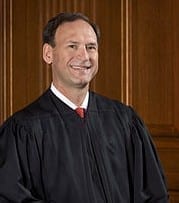5/27/2015
In a decision that helps to define the statute of limitations for whistleblower cases, the Supreme Court unanimously ruled Tuesday, May 26th that whistleblowers do not get extra time to file false claims complaints during a time of war. The case revolves around former Iraq contractor, Benjamin Carter, whose 2011 complaint under review alleges that defense contractors Halliburton and KBR billed the government for water purification work in early 2005 prior to completing the work later that year. Under the False Claims Act, the statute of limitations for submitting a complaint is 6 years, 3 years if the government should have known about the violation. Carter’s petitions, however, came after both deadlines had passed. The ruling sends the case back to federal court, where much of the case will likely be dismissed as the ruling expires most of the claims against the companies. The Supreme Court did not completely vanquish Carter’s case, however, making one key decision in the plaintiff’s favor. Ruling Justice, Samuel Alito found that language against duplicate pending lawsuits under the False Claims Act does not include dismissed lawsuits, which lawyers for Carter find to be an important component companies use as an argument against a claim.

Photo Courtesy of the United States Supreme Court
The key issue in the case was the meaning of the Wartime Suspension of Limitations Act (WSLA), a law which extends court deadlines during times of war. The Supreme Court ruled that the law only applies to criminal cases and does not include civil complaints. Justice Alito, writing in his opinion, said that the word “offenses” included in the WSLA, was a term “most commonly used to refer to crimes.” Justice Alito cited several other laws that refer to offenses as being criminal activities whereas language regarding civil cases includes much more clearly defined explanations. The ruling, in large part, reverses a 2013 4th Circuit Appeals ruling in favor of Carter against KBR and Haliburton, which split from KBR in 2007. Denying the allegations from the beginning, KBR attorney John Elwood called the WSLA ruling the key component to the case and that the company will seek a full dismissal in appeals court.
Despite Carter’s main arguments being essentially invalidated, the pending/dismissed lawsuit ruling and the lower court’s handling of the decision will still make a significant impact on false claims law. In his opinion, Alito wrote “Not only does petitioners’ argument push the term ‘pending’ far beyond the breaking point, but it would lead to strange results that Congress is unlikely to have wanted.” The decision affects several similar pending cases throughout the federal system, including one in the Supreme Court involving Purdue Pharma, the marketer of OxyContin. The Court has put that case on hold pending their resolution of the issue within the KBR decision. Carter’s attorney, David Stone said after the ruling, “We are optimistic we can still pursue the case,” whereas Elwood believes in spite of this side-decision, that there are no “live issues” left and therefore the case should be dismissed.
Sources:
New York Times – Adam Liptak
Reuters – Lawrence Hurley
Wall Street Journal – Brent Kendall


Join the conversation!